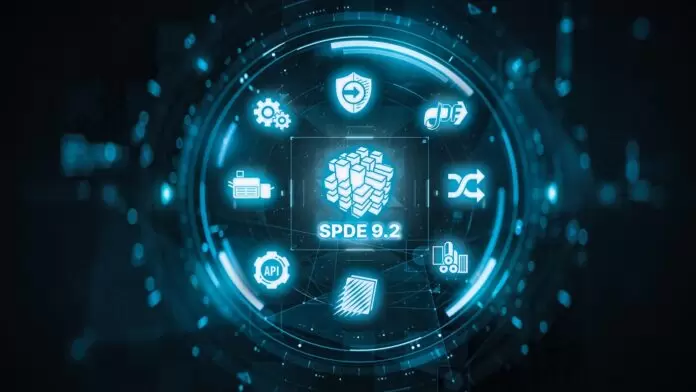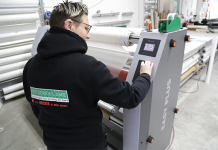Enhanced with new capabilities to expand its application and ease of use, Solimar® Print Director™ Enterprise (SPDE) version 9.2 features an intuitive operator interface for improved overall job control and enhanced IPP security for compliance. It also introduces new Job Definition Format (JDF) compatibility to better control finishing elements of the print process.
SPDE plays a crucial role in the overall Solimar Chemistry™ platform, providing an onramp to PDF-centric workflows while offering robust data optimisations, conversions, job management and device connectivity for non-PDF workflows. SPDE connects host computers to production print devices that normally do not directly interact, to provide a powerful enterprise output management system.
JDF Finishing Controls remove the need to convert PDF files into PostScript or other formats to further optimise the workflow. PDF finishing information in SPDE 9.2 is controlled by a rules-based system of JDF commands using conditional logic to map PDF file finishing commands to the required JDF format, saving processing and production time. Printers can now edit, maintain and add finishing commands throughout a PDF workflow, even when the source file is not PDF, thus supporting multiple industry standards.
With Solimar’s continued focus on data security, the Secure IPP Print Server™ within SPDE 9.2 now features additional authentication support, further strengthening this crucial capability. Other enhancements include an expanded API for the submission of jobs, font upgrades and job ticket conversions.
The award-winning ReadyPDF® optimisation module has been enhanced in version 9.2 with new features to expand its applications and simplify its user interface. ReadyPDF now includes a new Preflight Mode that can detect certain PDF characteristics, such as image and text properties, and can invoke necessary optimisations as needed. For example, if a user needs to flatten transparencies in a PDF, ReadyPDF can determine if there are transparency elements in the file. If no transparency elements are used, those jobs can bypass the flattening process, saving significant processing time.
These additional capabilities underscore the flexibility and utility of SPDE for managing high-volume variable print. SPDE not only allows users to flexibly integrate various applications and printing systems, but to do so across a broad spectrum of data streams including AFP, IPDS, Xerox VIPP, PostScript, PCL, Xerox DJDE/Metacode, TIFF, and PDF. Moreover, SPDE is integrated with other components of the Solimar Chemistry™ platform to enable intelligent batching, job and piece-level tracking, postal optimisation and other valuable capabilities.’
Mary Ann Rowan, Chief Experience Officer at Solimar Systems commented, ‘We’re thrilled to bring these major upgrades to our global customers. Some early adopters have shared that they are now able to retain jobs in-house that were previously outsourced, which improves their overall ROI.’
SOLIMAR
https://www.solimarsystems.com/















